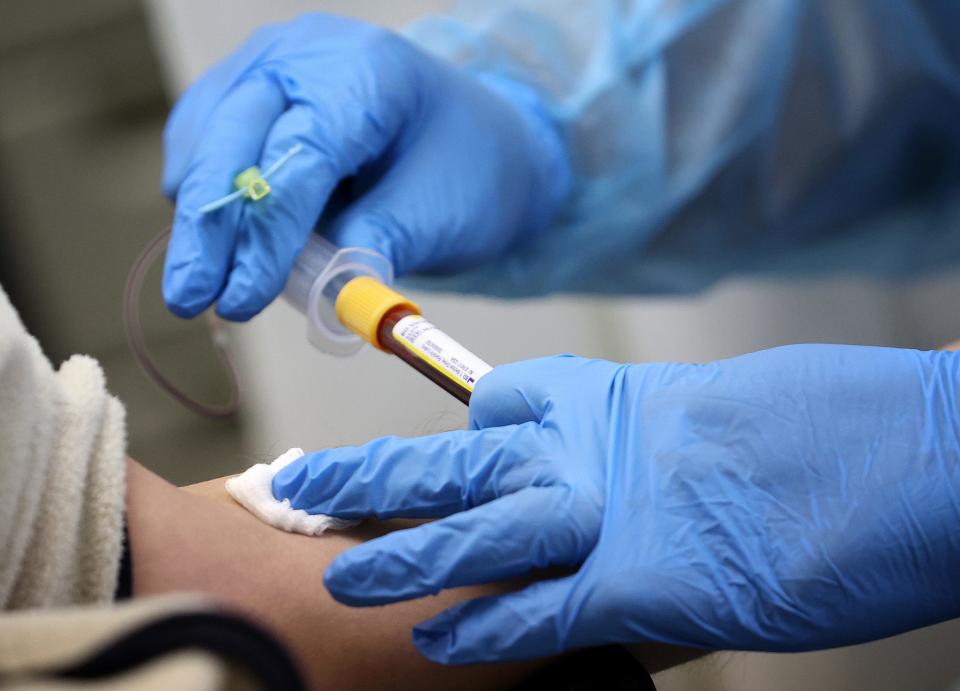UNF grad student: Time to break the silence on autoimmune pancreatitis
Let’s talk about something that affects a vital organ in your body — the pancreas. The pancreas helps with digestion and controls the sugar in your blood. But when it gets inflamed, you might have pain, feel nauseous and lose weight. One kind of inflammation is called autoimmune pancreatitis.
I never thought I would be a statistic. I was young, healthy and always on the go. But life has a funny way of throwing us curve balls when we least expect it. As someone with autoimmune pancreatitis, I understand how important it is to bring attention to this often-overlooked disease.
This rare but severe condition occurs when your body's immune system attacks your pancreas by mistake. Doctors are not exactly sure what causes autoimmune pancreatitis, but they think things like genes, smoking and immune system problems might be part of it.
The heart of the matter: Adult behavior often has roots in childhood experiences
'Full of hope': Mayo Clinic Jacksonville gets $41 million grant for major Alzheimer's study
Letters: Pending legislation can help pets (and their humans) benefit from telemedicine
The tricky part is that it looks like other diseases affecting the pancreas, like pancreatic cancer or chronic pancreatitis. That’s why some people do not get the proper treatment right away, which can worsen their symptoms.
There are two kinds of autoimmune pancreatitis: type 1 and type 2. Type 1 is more common and occurs when your body makes too much of a protein called IgG4. This protein can attack your pancreas and other organs like bile ducts and salivary glands. Type 2 is less common and has nothing to do with IgG4.
If you have type 1 autoimmune pancreatitis, you might have more symptoms than just pancreatitis, like a lot of IgG4 protein in your blood and problems with other organs. This can make it tough to tell it apart from other autoimmune diseases, like rheumatoid arthritis or lupus.
But there is good news: Doctors have gotten better at diagnosing and treating autoimmune pancreatitis. They can use ultrasound and biopsies to examine your pancreas to see if you have it. They can also use steroids to help with inflammation and manage symptoms.
Even though doctors know more about this disease than they used to, there’s still a lot they do not know. Some people with autoimmune pancreatitis might not get better with steroids or have symptoms returning later. So, you must see a doctor immediately if you have symptoms like belly pain, jaundice (yellowing of the skin or eyes) or weight loss. They can perform tests to see what is causing these problems and help you get the proper treatment.

If you have autoimmune pancreatitis, working closely with your doctor to manage your symptoms and protect your pancreas is essential. That might mean taking steroids, changing your diet or lifestyle and doing other things to help. Taking care of yourself is crucial, since this can be a challenging disease to deal with on a daily basis.
You are not alone if you or a loved one has been diagnosed with autoimmune pancreatitis. In fact, it is estimated that the disease affects about 1 in 100,000 people. Although it can be scary, many treatments can help you feel better and keep your pancreas healthy.
In my case, I have learned to manage my symptoms through medication and lifestyle changes; I’ve even resumed my active lifestyle. Through advocacy and community, we can raise awareness about the disease, support each other and push for better research and treatment options. But if you start having symptoms like stomach pain or jaundice, talk to your doctor and get the help you need.
Finally, it is essential to remember that a diagnosis of autoimmune pancreatitis is not a death sentence. We are all in this together.

Jaleesa Schatzan is a graduate student in UNF’s Master of Public Health program.
This guest column is the opinion of the author and does not necessarily represent the views of the Times-Union. We welcome a diversity of opinions.
This article originally appeared on Florida Times-Union: The importance of early diagnosis for autoimmune pancreatitis

